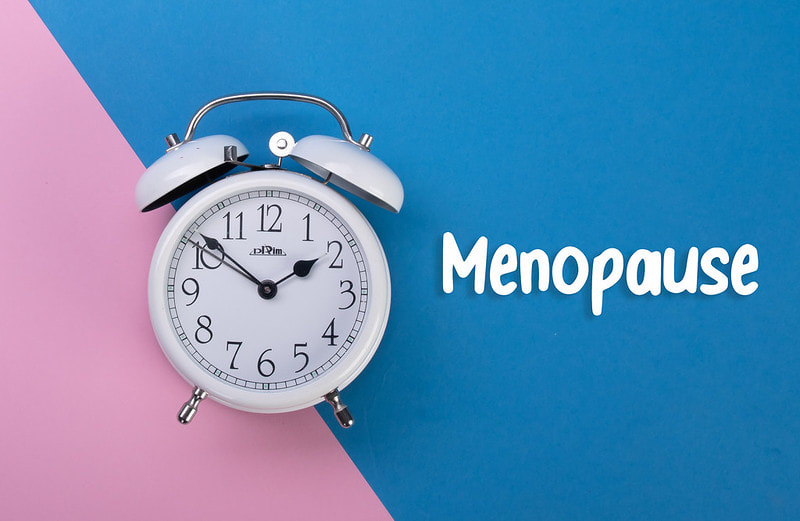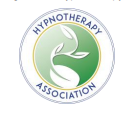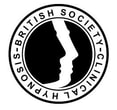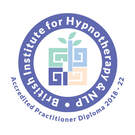|
Welcome to this months peer supervision talk on the menopause. Menopause symptoms can be very debilitating, as a woman aged 45, I recently realised that I was experiencing the signs and symptoms of perimenopause. I started struggling to sleep well, had big emotional outbursts that really weren't normal for me, and hot flashes. Hot flashes sometimes known as hot flushes, for me, feels as though I'm being very quickly overwhelmed with unbearable and stifling heat. I described it to my partner as a volcanic eruption going off in my belly and very quickly hot lava rises through my body into my head. When a flush happens, I become very quickly wet with sweat and need to change my clothes, I'm very conscious about body odour as I work with people, I prefer to smell good, so, often have to jump back in the shower and freshen up quickly, causing me to run late or rush and feel anxious. For many women when flashes happen there's a feeling of ‘everyone is looking at me’, wondering who that bonkers woman is who has suddenly turned a bright shade of red. The good news is hypnotherapy can massively help and i have been reaping the rewards already. Sweating is something that is not socially acceptable you certainly don't want colleagues at work to notice. Culturally it isn't just the hot flashes either, woman feel dried up, past it, old and forgetful…, sleep is a big issue and for many self-confidence plummets as ultimately you don't feel like you anymore. For me entering into this time in my life, also coincides with a knew sexual partner, for many of my friends it's a time when children leave home when our parents become sick and may even die. This time of life can really be a perfect storm of yuckiness. What's happening in the body? Perimenopause means ‘around menopause’ and refers to the time when your body makes the natural transition to menopause marking the end of the reproductive years. Perimenopause is also called the menopausal transition. The levels of estrogen and progesterone, the main female hormones in the body rises and falls unevenly, women may find that their menstrual cycles lengthen or shorten and they may begin having menstrual cycles where their ovaries don't release an egg, they don't ovulate, and may also experience menopause like symptoms such as hot flashes, sleep problems, and vaginal dryness. As we go through perimenopause our body's production of estrogen and progesterone rises and falls however… many of the changes clients experience during the perimenopause are a result of decreasing estrogen. There is a reduction of levels of the hormone estrogen, so what does that do and what effects may I see if that is happening? Estrogens are a group of hormones that play an important role in the normal sexual and reproductive development in women. They are also sex hormones. Estrogen is produced in the ovaries, although the adrenal glands and fat cells also make small amounts of the hormones. In addition to regulating the menstrual cycle estrogen affects the reproductive tract, and urinary tract, the heart and blood vessels, bones, breasts, skin, hair, mucous membranes, pelvic muscles and the brain. So, estrogen levels fall during perimenopause. It’s the period of time when hormones start to change and symptoms start to occur, this is a time before the menstrual period stops fully. Technically we don't enter into menopause until we haven't had any menstrual bleeding for 12 months. At this point you are menopausal, for one day, after which you are post-menopausal. Symptoms of low estrogen can include:
Lower estrogen impacts the brain it interacts with the part of the brain that affects body temperature regulation. The hypothalamus which is located at the base of the brain is the part that controls this function. It receives information from temperature sensors on the skin and other parts of the body to monitor temperatures and ensure everything runs smoothly. The hypothalamus regulates the bodies response to rising or falling temperatures. Estrogen has a multifaceted effect on the hypothalamus that regulates a number of homeostatic/ balancing functions including reproduction, temperature, energy balance, stress and motivated behaviours. Estrogen targets all of the major hypothalamic neuroendocrine and autonomic cellular groups that activate multiple signalling pathways. The hypothalamus has the greatest concentration of neurons that are dedicated to the control of heart rate, temperature and other specific physiological processes. The hypothalamus monitors and controls, it communicates with specific receptors and sensors throughout the body that detect disruptions in the normal balance of body functions and chemistry. These disruptions could be stress stimuli that can range from injury or infection to pain and or emotional distress. These neurons or hypothalamic nuclei alter the hypothalamic efferent outflow and change the functions of regulatory systems. This is a very clever system that enables the body to counteract stress stimulus and restore balance. These effects include alterations in the functions of the autonomic nervous system, endocrine and immune systems. Within the hypothalamus there are target systems and feedback systems that complete circuits and are homeostasis or balancing systems. A lack of estrogen causes the brain to falsely detect two much body heat and it takes steps to cool the body causing a hot flush.
When estrogen doesn't activate the brain stem correctly, we may have trouble sleeping. The amygdala the emotional centre of the brain close to the hippocampus, the memory centre of the brain, when estrogen levels drop in these regions we start to get mood swings and perhaps forget things too. Estrogen is an emotional regulator having an effect on the brain that is very similar to SSRI’s. The body's stress regulating organs, the adrenal glands, are also affected by falling levels of estrogen. We become more sensitive to stress, so levels of anxiety can increase, and we are more susceptible to depression and mood swings.
Earlier research shows that memory related complaints are predicted by age, hot flashes, depression, feelings of stress, and the perceived level of health. The good news is that changes in verbal memory and learning, as well as processing speed, do seem to return to normal postmenopausally. Thank goodness as I am continually forgetting the word for things… And sometimes I am finding I trip over my words… Hopefully not too much in today’s presentation. At present it is thought that the hippocampus and Para hippocampus and multiple regions of the prefrontal cortex of the brain are involved in the origin of the cognitive decline associated with severe vascular motor symptoms (hot flashes, palpitations and changes in blood pressure). Neuroimaging confirms that in post-menopausal women grey matter volume returns to normal especially in areas concerned with some types of memory and cognitive processing… in fact in post-menopausal women the grey matter volume was similar to that of males of the same age group and increased over the next two years.
There are some major health risks with low estrogen too these include; Osteoporosis, estrogen helps the prevention of calcium loss. Women who drink a lot of alcohol, who smoke, who are not active, and women who are very thin or petite are at greater risk. A family history of osteoporosis may also increase risk. Heart disease, estrogen seems to protect the heart against disease too, it's believed that it maintains the level of HDL, the good cholesterol in the blood so taking care of your heart is also really important. The average age at which menopause happens is in early 50s. For some women the unpleasant symptoms disappear with time, but others can carry on experiencing difficulties for many years. Why does menopause make women emotional? As well as the physiological impact of lowering estrogen, meaning that we are just more susceptible to depression and mood swings…. for many years, menopause has been ignored, not spoken about, or hidden away. In recent times that have been some great TV shows that have highlighted the challenges women experience when reaching perimenopause. I particularly enjoyed Channel 4’s show with Davina McCall, one definitely worth checking out if you haven't seen it already. It's been highlighted that woman haven't wanted to talk about how it felt because they saw being menopausal as the start as being defined as an old lady, past your sell by date and no longer capable of doing the things you once did. And the treatment choices that women were hearing from the medical profession didn’t help either. You could either take hormone replacement therapy, which had risks and might even give you cancer or you could just muddle through. There seems to be very few effective alternatives. The shortage of hormone replacement therapy may have hit the headlines recently, but problems with supply have existed for years. In 2015 guidance from the National Institute for health and care excellence encouraged more GPS to prescribe HRT as first line treatment for patients aged under 60 years of age who experience menopausal symptoms, such as joint pain, low mood or sexual difficulties. The guidance suggested that GPS were overestimating the risks of HRT and underestimating the impact of menopausal symptoms on the quality of life. Previous to that there were two studies done, the Women's Health initiative in 2002 and the million women study in 2003. These studies resulted in halving the number of HRT prescriptions because they identified some long-term health risks, including breast cancer, stroke and blood clots. Because of the NICE guidelines in 2015 the conversation around menopause started again and it was decided that it was OK to prescribe HRT and that in fact it is very safe. The pharmaceutical journal reporting on analysis of NHS data say that the prescription of HRT medication has more than doubled in England over the past five years. The latest monthly figures from open prescribing show that nearly 538,000 prescriptions for HRT treatment were issued in December of 2021, compared with 238,000 in January of 2017. This highlights just the number of women who were muddling through without medication before this conversation was brought into the public realm. However, this rocketing in rising prescriptions has also come amid a restriction in supply. Shortages were first reported at the end of 2018 and in 2019 and 2020 there have been supply problems with widely used estrogen only and combined patches containing oestrogen and progesterone. In April of 2022 health secretary Sajid Javid appointed Madelaine McTernan, as an HRT Tsar to help tackle shortages. Meanwhile women like me have not been able to receive the prescriptions that their GP's have recommended, and alternatives have not proven to be as safe. The reality is there is a huge need for alternatives to HRT and hypnotherapy really is a wonderful alternative. How hypnotherapy can relieve menopausal symptoms. Hypnotherapy can be used to help women regain control over their moods, emotions, and body. To reduce hot flushes, to tackle insomnia, to relax, reduce stress and anxiety and to change mindset to enable women to experience menopause as a gift. Because there are many gifts that menopause brings. Though it's still possible to get pregnant during perimenopause for most the post-menopausal years ushers in what can be a whole new era in women's sexual lives. Many women do experience vaginal dryness throughout this time so it can be thought of as an opportunity to find new ways of enjoying intimacy. Rediscovering who we are sexually, being fully authentic in the bedroom and discovering what works for you during menopause may take some exploring and a little imagination. Trying new positions, giving lubricants and moisturisers a go and regular sexual activity is great for your heart and can really help to keep those tissues healthy by increasing blood flow to the vagina. Making some extra time for foreplay and strengthening the muscles you need to orgasm can also help increase blood flow to the vagina, improve circulation and blood flow to the tissues of the pelvis and helps you have enjoyable sex life. There are few things all women experience in life and menopause is one of them. This can be a great excuse to recommend that your clients expand their friendship circle. women supporting women, seeking out other women's advice who've gone through this change to, pops weekly lunches with friends joining new groups to talk about what this stage of life means for them. Learning from and listening to others experiences and sharing stories can be a helpful humbling and educational experience. It's also a wonderful opportunity for us to offer group therapeutic sessions. Lowered estrogen levels can lead to some serious self-introspection. This may be challenging at first it can also be liberating. For many women there are parts of themselves they've always wanted to evolve, menopause can be the perfect time to do this it's a time to not just dream but also a time to become the person you've always wanted to be and look for opportunities to continue to develop, grow, engaging those things that you didn't have time to do before. Hypnotic intervention. The first thing that I address is the breathing. As we all do, we look for the frequency of the breath and find out if is it over 12 breaths per minute, is it a shallow breath. Why start with breathing? Because it can be very effective at switching off the anxious feeling’s when stress begins to build, it's also a very valuable way of switching off the stress response that can make an impending hot flush much worse. I found that when I use breathing techniques it can even stop a hot flush from coming on. see the video for my demo of breathing technique.
Women taking part in this research also reported being highly satisfied with the treatment, scoring it more than 9 out of 10. Hypnotherapy for hot flashes includes talking about imagining being cool, about the refreshing qualities of an ice cold drink on a hot day, perhaps about the feeling of an ice cube in the mouth imagining being cool all over and over again, this helps too train the brain to regain control over the bodies thermostat and help turn it down it is important to install self-hypnosis, as the research shows the effect of hypnosis is greater the more often you do it I'm able to get into the zone very quickly on it really helps me if I'm not feeling good. Restful, restorative sleep it is often a challenge during menopause stress and anxiety makes this worse in addition to night sweats. Clients may struggle to get off to sleep all to go back to sleep after being woken teaching our clients simple techniques to control night-time anxiety can mean a happier, more restful sleep. Research by the centre of Disease Control in the United States has shown that a third of menopausal women sleep an average of seven hours a night or less, and nearly half wake up without feeling rested at least four days a week. The research also showed that one in four menopausal women found it difficult to fall asleep, and one in three had trouble staying asleep throughout the night. We know that hypnotherapy has been shown to improve sleep quality and duration and 43% of people who took part in a randomised control trial reported improved sleep quality compared to only 4% in the control group. Clinical hypnotherapy has been shown to be effective in reducing many of the symptoms of menopause including hot flashes brain fog and fatigue. Randomised control trials of clinical hypnosis demonstrated the approach was significantly better than a structured attention therapy approach with post-menopausal women who experienced frequent hot flashes and more effective than acupuncture, herbal supplements and yoga. As conversations about menopause become more commonplace in the workforce many hypnotherapists are being brought into the workplace to work with women who are going through the change. Approaches We can teach women simple techniques that manage their symptoms and offer support to reduce stress, anxiety, frustration, enable better sleep, bring more balance to the systems within the body and embrace this transition as a gift an opportunity to become the best version of yourself you can be.
There is such a great deal we can do including group sessions as well as one to one sessions, if you are drawn to this work and would like to see some example scripts that I have created, I have scripts with examples of all these techniques I have mentioned. Please do check out the eLearning shop on our website over the next few weeks where I will be selling my script book and session plan guide. Blatant plug there!! Thank you
0 Comments
Leave a Reply. |
||||||||||||










